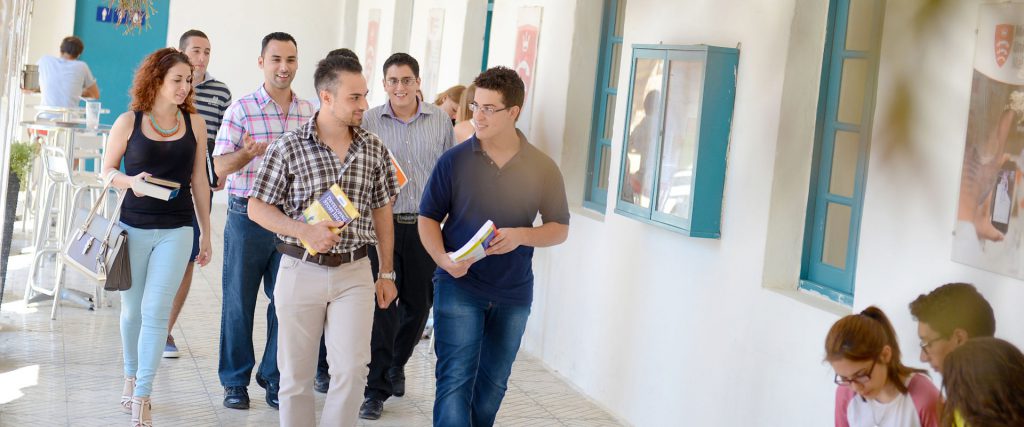Ireland’s higher education system comprises universities, specialized colleges that offer programs in specific subject areas, and technological institutions. The latter provides a wide choice of vocational programs in fields like hospitality, healthcare, pharmacy, media, textiles, marketing, and many more in addition to technical courses. In 2019’s QS World University Rankings®, Ireland’s seven public universities and one of the 14 institutes of technology all earned places among the top 700 global universities. Ireland is also home to seven private colleges, ranging from the small Burren College of Art with 200 students to the large Dublin Business School serving over 9,000.

Trinity college Dublin
Trinity College Dublin, founded in 1592, stands as Ireland’s oldest institution of higher learning and a distinguished member of the revered “ancient universities” in the UK and Ireland. Designed to mirror the esteemed Oxford and Cambridge colleges, Trinity College Dublin stands apart as the sole constituent college within the University of Dublin. At joint 104th in the world, Trinity College Dublin is now Ireland’s most distinguished institution. The university’s three faculties—Arts, Humanities, and Social Sciences; Engineering, Mathematics, and Sciences; and Health Sciences—total more than 17,000 students now.
University college Dublin
University College Dublin, which has its headquarters in the vibrant Irish city, has its origins at the 1854-founded Catholic University of Ireland. Ireland is positioned as the world’s second-best country in the 2019 QS World University Rankings, with a ranking of 193rd. The institution comprises five colleges, 34 schools, and 18 research institutes and centers, currently enrolling 34,000 students. It has numerous well-known alumni, such as Oscar-winning filmmaker and producer Neil Jordan, Irish author James Joyce, and actors Gabriel Byrne and Neil Jordan.
National university of Ireland, Galway
In 2018’s QS World University Rankings, the National University of Ireland, Galway, reached a joint 260th position and achieved a coveted five-star rating in the QS Stars assessment. Nestled on the picturesque west coast of Ireland in Galway, the institution currently boasts an enrollment of over 18,700 students. The campus is currently undergoing a €400 million reconstruction effort. The institution takes itself in providing a variety of uncommon degrees, such as a BSc in Podiatry and a BE/MEng in Sport and Exercise Engineering.
University college Cork
University College Cork, which is ranked joint 338th in the world, is the next-best Irish higher education institution. Although it was formally renamed University College Cork – National University of Ireland, Cork in 1998, it is still frequently abbreviated as UCC. In 2010 University College Cork became the first institution of higher learning to be awarded the international Green Flag for environmental sustainability. The institution also achieved five QS Stars for overall excellence. Its headquarters are in Cork, which is in southern Ireland.
Dublin city University
Dublin City University was founded in 1975 and received university status in 1989, making it a far more recent institution than the three historically significant universities mentioned above. However, it has quickly established a solid foothold and is currently rated 422nd jointly worldwide. Currently, approximately 17,000 students are registered, including roughly 1,000 engaged in distance learning programs. Situated in northern Dublin, the institution boasts an expansive on-campus arts complex known as The Helix, featuring various performance venues of varying sizes.
RCSI university of medicine and health sciences
Since receiving a royal charter in 1784, the RCSI University of Medicine and Health Sciences has been a renowned surgical college. It is presently Ireland’s largest medical institution. RCSI, a private institution, provides several scholarships for PhD and master’s students from Ireland and abroad. For undergraduate and graduate programs, there are several admissions options for students from the EU and other countries. RCSI offers four-year undergraduate physiotherapy programs and five-year undergraduate pharmacy programs, expanding its offerings to include postgraduate programs in bereavement studies and healthcare technologies. These are just a few of the many undergraduate and graduate degrees in science and healthcare. RCSI hosted several well-known leaders in the surgical and medical development fields. Nada Haffadh, who was appointed health minister in 2004 and became Bahrain’s first female cabinet member, is one such instance. Another is Lord Ara Darzi, a pioneer in minimally invasive surgery and surgical robots.
You may also find these articles helpful
Reasons to immigrate to Ireland
